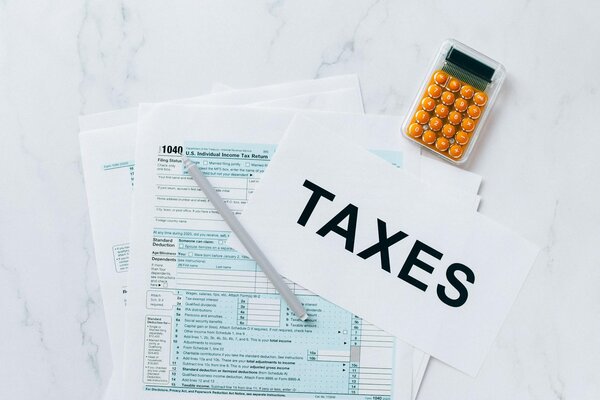
As the UK government prepares its upcoming budget announcement, speculation is growing about a possible increase in dividend tax rates. Investors and company directors could soon face a higher tax burden on their earnings, impacting both individuals and businesses alike. With economic pressures mounting, the government may be considering adjustments to the tax system to boost revenue.
The Importance of Staying Informed on Tax Changes
Understanding these figures is crucial for investors and business owners planning their financial strategies. With changes to tax-free allowances and potential rate increases, staying informed can help individuals make proactive decisions to mitigate financial impact.
The Current Dividend Tax Landscape
Dividends, a common source of income for investors and business owners, are payments made by companies to their shareholders. As of the 2024/25 tax year, individuals can receive up to £500 in dividend income tax-free, a significant reduction from the £2,000 allowance available in 2023/24.
Any dividend income exceeding this threshold is subject to taxation at the following rates: 8.75% for basic rate taxpayers, 33.75% for higher-rate taxpayers, and 39.35% for additional rate taxpayers. Given the trend of decreasing tax free allowances and adjustments to tax rates, there is ongoing speculation that the government may implement further increases to boost revenue.
Why Might Dividend Taxes Increase?
There are several reasons why dividend taxes could be set to rise. First, the government may see increasing dividend tax as a way to generate revenue and help balance the budget while funding public services. Additionally, policymakers might argue that dividend taxation should be more closely aligned with other income tax measures to promote fairness in the tax system.
Economic pressures, such as rising inflation and financial instability, could also drive fiscal adjustments, making higher dividend taxes a viable option. Historically, the government has repeatedly revisited dividend taxation seen in past reductions to the dividend allowance and previous tax hikes suggesting it remains a key area for raising additional revenue.

Potential Impact on Investors and Business Owners
If dividend tax rates increase, the financial impact on investors and business owners could be significant. For those who rely on dividends for income, an increased tax rate would reduce overall returns. Company directors, who often pay themselves via dividends to benefit from lower tax rates compared to salaries, could see their tax liabilities rise.
A 1-2% increase in dividend tax rates would mean higher costs for businesses and individuals alike, potentially discouraging investment and entrepreneurship.
Expert Opinions and Market Reactions
Financial experts suggest that an increase in dividend tax could discourage investment and place additional strain on small businesses. Some analysts argue that such a move may prompt individuals to restructure their income sources, such as shifting towards salary payments rather than dividends.
Industry bodies, such as the Federation of Small Businesses (FSB), have voiced concerns that higher dividend taxes could negatively impact business owners who rely on these earnings to reinvest in their companies. Investors are also monitoring the situation closely, with market analysts predicting potential shifts in stock market behaviour if the policy is confirmed.
Preparing for Potential Changes
With the possibility of increased dividend taxes looming, investors and business owners should evaluate their financial strategies. Reviewing dividend income, considering alternative tax-efficient investment options, and seeking advice from financial professionals could help mitigate potential tax burdens. Staying informed about policy changes will also be crucial in making proactive adjustments before any official announcements.


Fun Fact
Dividend taxation in the UK has changed significantly. In 2016, the tax credit system was replaced with a tax-free dividend allowance and set rates. Originally £5,000, this allowance has dropped to £500, reflecting the government's trend of incremental tax adjustments.
Conclusion
The possibility of a dividend tax increase has sparked concern among investors and business owners. While the government has not yet confirmed any changes, historical trends and economic factors suggest that dividend taxation could be a key area of focus in the next budget. Investors and business owners should prepare for potential adjustments and consider seeking professional financial advice to navigate any upcoming tax changes.
Frequently Asked Questions
What is the current tax-free dividend allowance?
The tax-free dividend allowance is £500 for the 2024/25 tax year, down from £2,000 in 2022/23.
How are dividends currently taxed in the UK?
Dividend tax rates are 8.75% for basic-rate taxpayers, 33.75% for higher-rate taxpayers, and 39.35% for additional-rate taxpayers.
Why might dividend taxes increase?
The government may raise dividend tax rates to generate revenue, align taxation with income tax, and address economic challenges.
How could a dividend tax increase impact investors?
Higher tax rates would reduce returns on investments and could lead to shifts in income planning strategies.
What can investors and business owners do to prepare?
Consulting with a tax professional, diversifying income streams, and staying updated on policy changes are recommended strategies.










